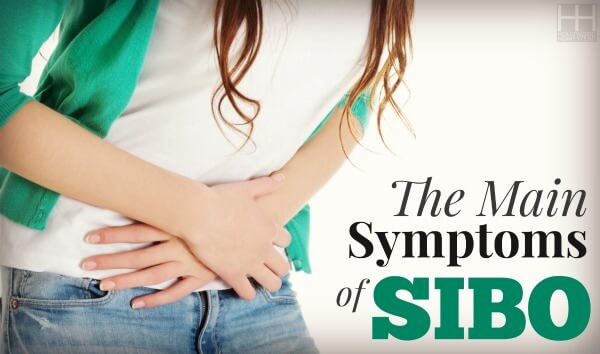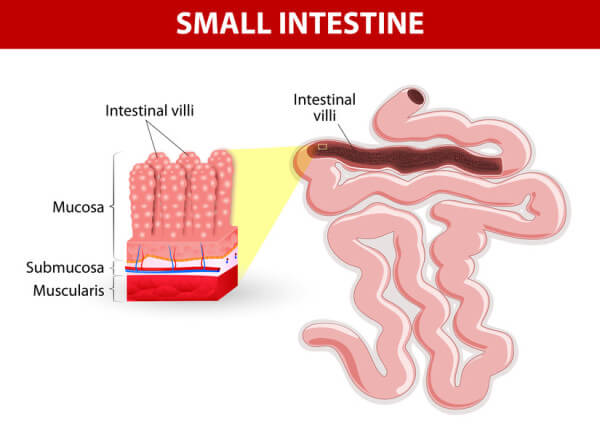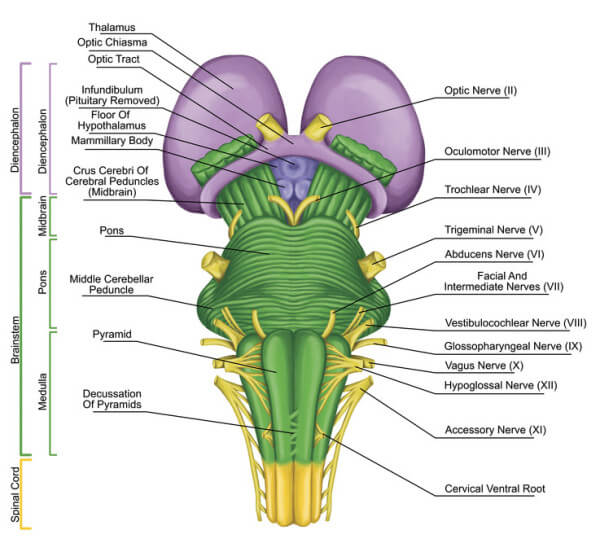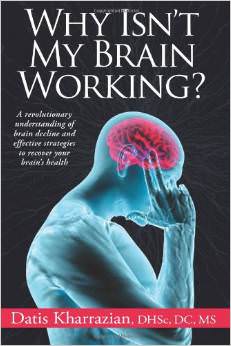
SIBO – Small Intestine Bacterial Overgrowth syndrome – is a chronic disease in which there is too much bacteria in the small intestines, or the wrong type of bacteria (most commonly, bacteria from your large intestine getting into your small intestine). As you’d expect, SIBO causes many gastrointestinal symptoms. However, because the gut is linked to so many other parts of the body, SIBO can cause a wide range of symptoms from depression to skin rashes.
This is Part 2 in a series about Treating SIBO. Click the following link to read Part 1:
The Main Symptoms of SIBO
When you have too much bacteria in your gut, the bacteria will start feeding off of undigested particles of food. The bacteria causes the starches to ferment. The fermentation process produces hydrogen gas as a byproduct. If you have an overgrowth of bacteria, then the bacteria are going to have a field day eating away at your food — before your body can even start digesting them. You end up with a gut full of hydrogen gas.
With the methane-producing type of SIBO (which we will get into later), there is also an overgrowth of archaea, which are single-cell organisms without a nucleus. The archaea feed off of hydrogen, but they produce methane as a byproduct. In either case, you end up with a lot of gas in your gut.
What happens when your gut is full of gas? Well, the obvious one is that you are going to have flatulence and/or belching. The gas can also cause severe bloating. Even if you are thin, the bloating can be so bad that you look like you are 5 months pregnant. It’s not really a laughing matter but I like to joke that it feels like I’m a hot air balloon and if you see me floating around, please pull me down. 😉 During my worst days the bloating was so severe I felt like I was in the last month of pregnancy when sitting at a 90 degree angle is very uncomfortable.
Another problem which sometimes occurs with SIBO is severe abdominal pain. This is partly due to the fact that the intestines are sensitive to pressure, so even a small amount of gas can cause pain. The pain can also be caused by visceral hypersensitivity. Dr. Christina Lasich describes visceral sensitivity very well by comparing it to a sunburn. When your skin becomes burned, even the slightest tough makes it hurt. This is hypersensitivity. Well, the very thing can happen when your gut is chronically damaged, making the pain more intense.1
Two common symptoms of SIBO are diarrhea and constipation. Hydrogen-producing SIBO is associated with diarrhea. Methane, which slows down motility (the transit of substances through the bowel), is associated with constipation. However, it is possible to have both hydrogen and methane present, so having alternating bouts of both diarrhea and constipation are not uncommon SIBO symptoms.
Overview of Main SIBO Symptoms:
- Flatulence and/or belching
- Bloating
- Abdominal pain
- Cramps
- Diarrhea and/or constipation2
Other Symptoms of SIBO
If it were just digestive problems that we were talking about, then SIBO wouldn’t be such a big deal. But our gut is responsible for much more than just eating. Problems in the gut can cause other problems including malnutrition, neurological and psychological problems, and skin problems.
Malnutrition from SIBO
Digestion starts the moment you put something in your mouth. Chewing starts to break down starches and saliva further breaks them down. Powerful acids in your stomach break down proteins. Bile from the liver and pancreatic juices flow into the small intestine where they mix with stomach acids to break down carbohydrates, proteins, and fats. It is here in the 20 feet of small intestine that the bulk of digestion occurs. It is also in the small intestine that nutrients are absorbed.

There are two ways that SIBO causes malnutrition:
- Bacteria compete for nutrients
- Bacteria produce byproducts which irritate and inflame the small intestine, hindering nutrient absorption
For example, bile usually helps break down fats. When you have SIBO though, the bacteria deconjugate (disrupt) bile salts, leading to insufficient amounts of fat absorption. This is NOT a good thing! Your body relies on dietary fat to transport fat-soluble vitamins. This is why SIBO can cause deficiencies in vitamins A, D, and E. Vitamin K is also a fat-soluble vitamin. However, it is produced from fermentation, so it is rare in SIBO.4
- Vitamin A Deficiency = poor immune system, vision problems like night blindness
- Vitamin D Deficiency = poor bone health, hormonal problems, increased cancer risk
- Vitamin E Deficiency = muscle weakness, vision problems, poor immunity5
The unabsorbed fatty acids can also caused other nutritional problems. The acids can bind with minerals like calcium and magnesium (important for bone health) and form “soaps” which your body can’t break down. This drastically increases the risk of bone diseases.6
B12 deficiency is also a major problem with SIBO. The bacteria consume the B12 before the body can absorb it.7 B12 has many important roles, including making DNA and keeping the body’s blood and nerve cells healthy. Without enough B12, you can experience symptoms like:
- Fatigue
- Depression
- Confusion
- Poor memory
- Nerve problems like numbness or tingling
- Megaloblastic anemia8
And this is just the tip of the iceberg! Because the bacteria can inflame and damage the sensitive villi lining the small intestine, the body can have problems absorbing all sorts of nutrients. You can eat an incredibly healthy diet full of superfoods but it won’t do you any good if your body can’t absorb the nutrients!
Psychological Symptoms of SIBO
Recently, experts have come to recognize a strong connection between the brain and the intestines. They call this the gut-brain axis. The gut-brain axis is so powerful that our gut bacteria is now often referred to as the “second brain.”9
The gut-brain axis isn’t exactly a new discovery. For over 100 years, scientists have known that the brain can influence the gut. One example is the army surgeon William Beaumont who, in the 1830s, found that changes in mood affected gastric secretions in the gut. Even people without a medical background can recognize the gut-brain axis. Think about it: when you are stressed, you often get indigestion. When you are depressed, you often feel the urge to eat.
What is new about the gut-brain axis is that researchers finally realized that it is a two-way street. Actually, more like a cylindrical street. The brain affects the gut, and the gut can affect the brain. For example, stress is thought to be a major cause of SIBO. But, a damaged gut can also affect your brain and make you feel stressed. That is why stress can be both a cause and a symptom of SIBO.10
The gut-brain axis is fairly complex, especially when you take into account that there billions of neurons in our brains, trillions of bacteria in our guts, and upwards of 1,000 distinct species of bacteria in the gut. Obviously, there is a lot to analyze!
The vast majority (90%) of the brain’s output goes through the pontomedullary area of the brain stem, which then goes to the vagus nerve. The vagus nerve goes through the heart, esophagus, and lungs and into the gut.10 Studies now show that changes to gut microbiota can affect the brain. (*Microbiota, also known as gut flora, is a term which includes all microbes living in the gut, including bacteria, archaea, fungi, and viruses). The microbiota influence the brain even when the immune system isn’t activated, which means it is the microbiota which are directly “talking” to the brain! Note though that it isn’t just the microbiota itself which is doing the talking. Bacteria in the gut can cause inflammation, which is an immune response – and the immune system also communicates with the brain.11
Most of the studies to date have been on animals, but the results are pretty amazing. For examples, when rats were fed an antibiotic-laced drinking water, it caused anxiety-like behavior. When the antibiotic treatment stopped, their behavior went back to normal two weeks later.12 The human studies which have been done mostly involve administering probiotics, and have found that probiotics can influence mood.13

Because of the gut-brain axis, these are some of the SIBO symptoms you might experience:
- Stress
- Brain fog
- Poor memory
- Anxiety
- Depression
Remember, the gut-brain axis is a two-way street. Stress, neurological, and psychological problems aren’t just symptoms of SIBO, but can also be causes of SIBO!
To learn more about the brain connection with SIBO, I highly recommend reading Dr. Kharrazian’s new brain book called Why Isn’t My Brain Working. In the book, he teaches you nutritional strategies for improving brain function. I’ve just started with it but I’ve heard great feedback about his methods from SIBO patients. You can buy the book here.
Skin Conditions as Symptoms of SIBO
Do you have acne, rashes, or eczema? Or maybe you just have uneven, flaky skin? These can all be symptoms of SIBO. On a basic level, SIBO can cause skin problems because it interferes with nutrient absorption, and poor nutrition often reveals itself first through your skin. As talked about in the nutrient deficiency section, SIBO particularly interferes with the absorption of fat-soluble vitamins – including Vitamin E which is known for its role in skin health.
However, the main reason that skin conditions are a symptom of SIBO probably goes back to the gut-brain axis. Well, we need to add one more axis: The gut-skin axis. You have already experienced your brain-skin axis, such as when your skin flushes when you become embarrassed or you get a breakout right before a stressful exam. Since the gut influences the brain, it follows suite that the gut can influence your skin.
Interestingly, the gut may be able to influence the skin directly. Your skin is teeming with bacteria: there are about 1 million bacteria living on each square inch of skin you have.14
Research indicates that signals from your gut bacteria can interact directly with the bacteria on your skin.15 The bacteria in SIBO can also cause inflammation, which also is a trigger for acne.
Like with the gut-brain axis, much more research is needed before we can fully understand the gut-skin axis. However, we do know these facts:
- A study found that SIBO is 10 times more prevalent in those with acne rosacea vs. healthy controls
- Correction of SIBO leads to marked clinical improvement in patients with rosacea
- A Russian investigation reported that 54% of acne patients have marked alterations to the intestinal microflora
- A Chinese study involving patients with seborrheic dermatitis also noted disruptions of the normal gastrointestinal microflora16
This article is part of a series on Treating SIBO. Learn more about SIBO in the next part:
Ready to eliminate SIBO once and for all? Get your copy of The SIBO Solution: Your Comprehensive Guide to Eliminating Small Intestinal Bacterial Overgrowth by clicking HERE. You’ll also receive a BONUS SIBO Detox Support Guide mini ebook with your purchase.

Latest posts by Sylvie McCracken (see all)
- Treating H. Pylori (Part 3): What H. Pylori Does to the Body - August 8, 2022
- Treating H. Pylori (Part 2): How H. Pylori is Contracted - August 3, 2022
- Understanding Beef Labels: Organic, Pastured, Grass-Fed & Grain-Finished - July 25, 2022

Hi Sylvia
I just found out by another member on my support group for leaky gut, that the sympoms I am having are like hers and she has SIBO. That was confirmed with the breath test by doctor. As I started reading about it, there is no doubt in my mind that I have it. I cannot find however, symptoms this woman and I both have in any of the articles. I have such sever burning and pain in my chest when things flare up, that I was rushed to the ER from my doctors office on one occasion because we thought I was having a heart attack. Turned out I wasn’t. Of course they didn’t look into the cause any further. It burns so much that even my upper back directly behind my chest is very painful. I have wondered if my esophigus is burning up. Anyway with these symptoms and many others this woman and I have in common, it affects me so much I cannot even get out to do even the simplest things. I am utterly miserable and at it’s mercy. Have you heard of these symptoms with anyone else? If so, do you know what I can do to relieve it? I mean quickly. I am doing the work to cure the leaky gut and now will be incorporating this into my diet as well, but curing it and healing of course take time and I am desperate to feel better. I would prefer to not have to go the pharmacutical rout if I can help it.
Thank you for your time,
Medea
Excellent article..explains everything perfectly!
Thanks Deborah 🙂
Wow… not a single legitimate citation or reference to any medical or scientific journals in this whole article. I would really love the citation information regarding the Chineese and Russian studies that were briefly mentioned. Not very much is known about SIBO and, although doctors are not sure why it occurs, they have noticed correlations between SIBO and other conditions.
Here are some scientifically and medically accurate articles regarding SIBO:
http://www.ncbi.nlm.nih.gov/pmc/articles/PMC2890937/
http://www.ncbi.nlm.nih.gov/pmc/articles/PMC3099351/
http://www.ncbi.nlm.nih.gov/pmc/articles/PMC1856094/
Researching this condition has been the most frustrating process. How can you write an article like this and not provide your what your information sources are? I find that baffling. I am also amazed that you neglected to mention one of the defining features of SIBO: the inability to digest carbohydrates. Literally the culprit for all the gases and everything. Also, intermittent vomiting and alcohol intolerance are very common among SIBO patients.
I was diagnosed with SIBO at the Mayo Clinic in Rochester (they have one of the best GI and Immunology departments in the world) and they explained it to me quite differently than how you have in this article. Essentially, there should be hardly any bacteria in the small intestine as it normally is too acidic for bacteria to survive there. Often, what happens in SIBO patients is that E.Coli from the large intestine starts growing in the small intestine—where it should not be. What happens is that the E.Coli start breaking down the dietary starches sooner than they should be and start to ferment. The toxins produced by fermenting and waste produced by the bacteria then strips the mucosal lining from the rest of the intestines and can cause other symptoms.
The nutritional deficiencies are caused by the gut not being able to absorb things properly from literally not being able to digest carbohydrates. The diarrhea is caused from the toxins produced by the bacteria and the fermenting carbohydrates stripping the mucosal lining from the rest of your intestines. Any fat soluble nutrients are often poorly absorbed by people with SIBO because things tend to go through too quickly to be digested, broken down, and abosorbed properly.
The only way to know if you actually have SIBO is to get a Breathe Test done. It’s very simple, they get you to drink a very high carbohydrate solution and the measure how much gas is produced after. This is done by exhaling through a tube with a bag attached and they collect a sample of air from the very last bit of your breathe. They then measure how much Methane and Hydrogen. SIBO patients tend to produce exponentially more Hydrogen than someone with a healthy gut. I was producing 6x as much Hydrogen gas as I should have been. Rifaximin is the antibiotic they prescribed and it is one of the safest antibiotics on the market. It is so safe because it cannot penetrate the blood/gut barrier–meaning it will only kill bacteria in the gut and will not effect the rest of the body.
Probiotics can help people with SIBO because they make the small intestine too acidic for bacteria, like E.Coli, to grow. L.Casei has been noted to be a particularly beneficial probiotic.
There is my rant… But PLEASE if you are going to write on medical topics have the common decency to cite sources. People read this stuff and take it at face value… You have a responsibility as a writer to show your reader where you got your information and why you came to these conclusions. Especially, when this article could impact someone seeking medical help or not.
Hi Em,
Sorry you’re not feeling well! We’ve got plenty of links to references, discussions about breath tests and antibiotics in each of the SIBO posts on those topics. This is only post 2 in a series of 10. (They’re all linked here: https://hollywoodhomestead.com/treating-sibo/)
I hope you feel better soon!
Sylvie
Hi,
I would like to know: in SIBO you would have to experience bloating, cramps and flatulence on a daily basis (also how often?) or it is related to a specific food / food group / food combo?
Thank you.
Alesea, not necessarily. You could have just some of the symptoms and they may be constant or they could be exacerbated by certain foods or stress. The foods are most often FODMAPs and/or specific carbohydrates but again, it’s tricky because it varies per person. So, for example garlic was a big trigger for me but you may be fine with it but may react severely to apples.
The symptoms will also vary depending on whether you are methane or hydrogen dominant. The best way to know if you suspect based on symptoms is to get a 3 hour lactulose test to confirm.
Hope that helps!
When can I read the next article about how to treat SIBO?
Hi Ann,
It will be posted next week. Stay tuned and make sure you’re signed up to receive emails. 🙂
I have been reading obsessively about this topic lately and I love how you’ve approached it so far. Looking forward to the rest of your SIBO posts!
Thanks so much Kiersten! Glad it’s been helpful 🙂